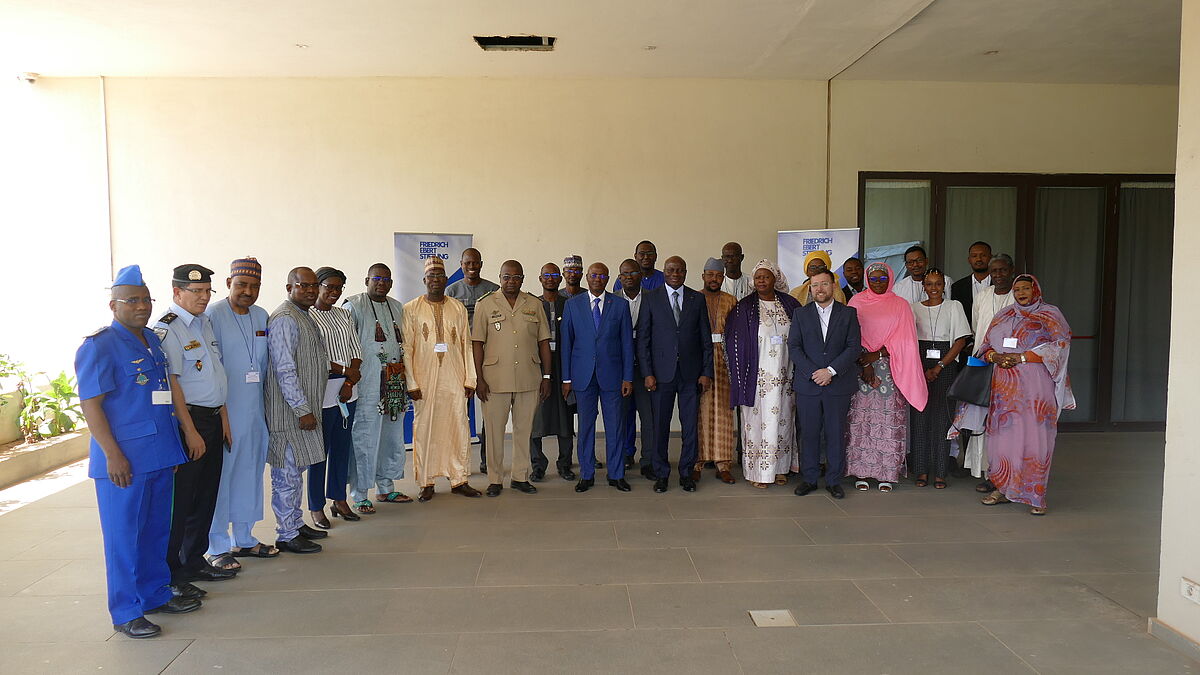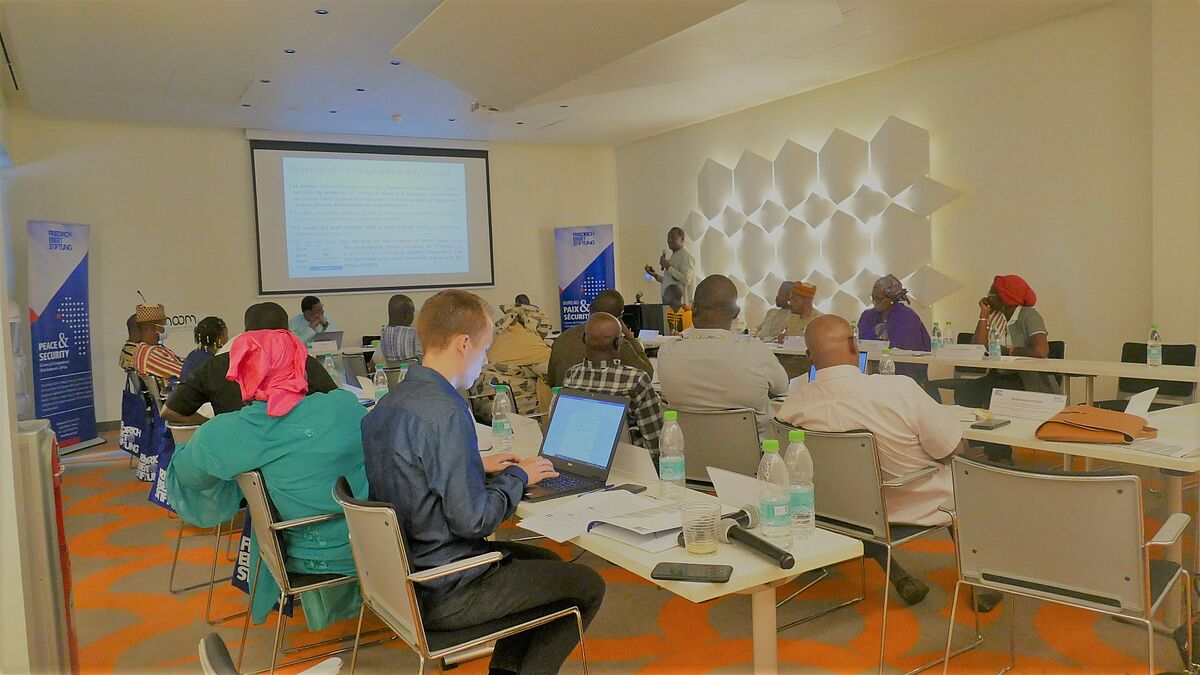4th Edition Sahel-Sahara Dialogue "The Sahel facing contemporary geopolitical challenges and changes: towards what prospects for the region?"

For years, the Sahel countries have been grappling with a succession of political, humanitarian, environmental and security crises with negative impacts on peace and development. The threats of destabilization in this region encompass a broad spectrum of economic, social and political factors as well as inter-communal tensions and challenges related to climate change, among others. Insecurity is further fueled by extremist groups (Al Qaeda in the Islamic Maghreb, Islamic State in the Greater Sahara), limited capacities by states and especially the absence of clear strategies of political leaders. Organized cross-border crime facilitated by the vastness and porosity of borders, the illegal circulation of small arms and light weapons only aggravate these tensions. The 4th edition of the Sahel-Sahara Dialogue provided an opportunity to revisit the multidimensional challenges of insecurity and instability and to discuss the apparent deterioration of already precarious conditions, including the spread of terrorist and extremist threats from Mali, Burkina Faso and Niger to southern countries such as Benin and Côte d'Ivoire.
During the five panels different aspects were addressed by the participants coming from Benin, Burkina Faso, Chad, Côte d'Ivoire, Mali, Mauritania, Niger and Senegal. They not only scrutinized the problems but developed recommendations that focus on increasing human security and the inclusion of civil society, despite military actions still remaining indispensable in certain circumstances. The awareness of the geopolitical context and its ramifications on regional policy and cooperation in the Sahel was another significant outcome.
The conference panels focused on the following themes:
- To analyze the security dynamics and challenges in the Sahel and their impact on regional stability and the Gulf of Guinea countries?
- What integrated regional approaches and strategies to sustainably address hybrid and dynamic security threats in the Sahel?
- Collective security in the Sahel: How can civilian populations contribute to peace and stabilization efforts in the region?
- Sharing experiences and analyzing national resilience strategies against the backdrop of growing insecurity in the Sahel.
- The prospects for lasting peace in the Sahel: towards which possible scenarios in the short, medium and long term?
The exchanges and discussions highlighted several recommendations:
- Firstly, there is a need to integrate and coordinate national security policies in the region to address the transnational nature of threats. This requires to understand root causes of radicalization and destabilization. Additionally, dynamic security cooperation between the Sahel countries as well as with neighboring countries including the sharing of more reliable information is needed.
- Purely military responses must be avoided favoring instead reinforced and respectful coordination between the police, gendarmerie and civil society actors. This includes strengthening the skills of civil society organizations in countering terrorism and violent extremism strategies.
- There is a need for a "renegotiation of citizenship" which requires a societal dialogue that listens to the population and increases the inclusion of state and security institutions. At the same time, stigmatization of marginalized communities must be discussed, addressed and fought.
- Good governance must be institutionalized and address the challenges of corruption, mismanagement, and weak judicial systems. By the same token, states must be better equipped to handle significant demographic changes and increases.
- Regional cooperation and its capacities require greater attention, first of concerning ECOWAS. Responsibility must be assumed in the region reducing dependence on external aid. This implicates first of all to renew bilateral dialogue in the region, particularly between Mali and Niger.
Also, a regional consensus on the position of the Sahel in global (geo)politics is needed, which would facilitate the sustainable management of regional security and would also serve to proactively react to the global divide between "North" and "South" where the Sahel is on a capitalist periphery.

Friedrich-Ebert-Stiftung
Peace and Security Centre of Competence Sub-Saharan Africa
Villa Ebert
Avenue des Ambassadeurs
Fann Résidence
25516 Dakar-Fann
Sénégal